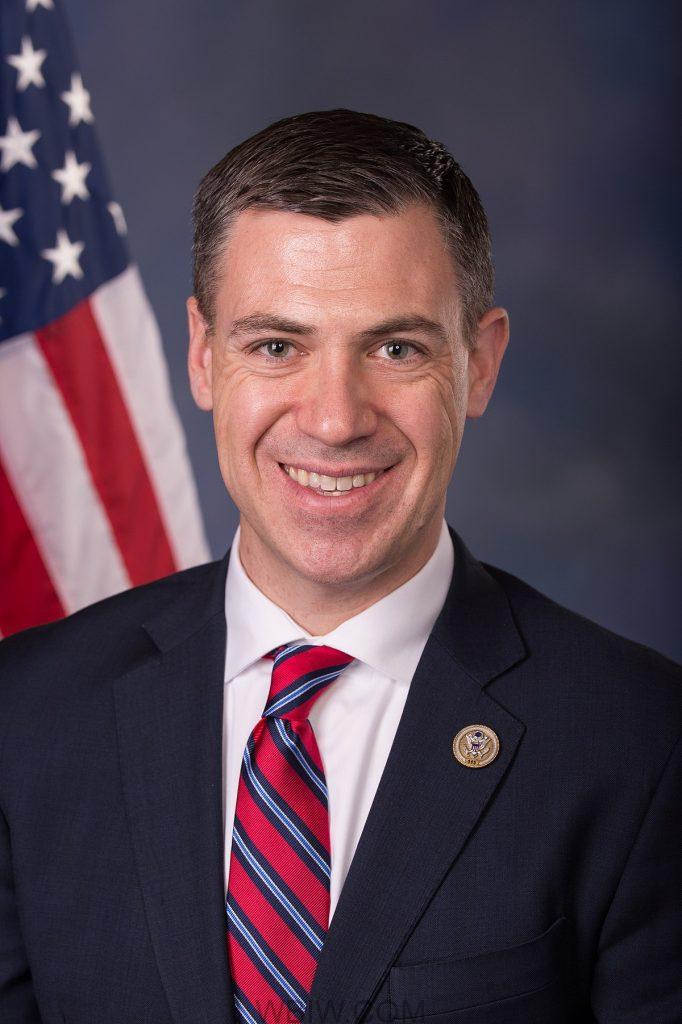
WASHINGTON – Today, Rep. Jim Banks (IN-03), Chairman of the House Armed Services Committee’s Subcommittee on Military Personnel released the below statement following the Military Personnel Subcommittee’s passage of its portion of the Chairman’s Mark for the Fiscal Year 2024 National Defense Authorization Act.

“I’d like to thank every member of our subcommittee for working hard to address the historic recruiting and retention crisis facing our nation, most significantly by passing the largest pay raise for our troops in decades,” said Rep. Jim Banks.
In my first year as Chairman boosting military salaries ahead of projected inflation has been a top goal of mine, and I’m proud of our success today. Our legislation also streamlines DoD’s civilian hiring processes, authorizes monthly bonuses for junior enlisted personnel, and provides additional child care, education, and career opportunities for military families and military spouses. Its provisions addressing the scourges of fentanyl and suicide in the services are especially meaningful to me.
Lastly, in crucial steps for competition with China and defense innovation, our bill cuts all ties between the JROTC program and Chinese Communist Party-controlled schools and establishes a Space National Guard to keep America preeminent in the next frontier.”
Read the bill text HERE.
MILPERs Chairman’s Mark Summary
Key Wins
- Military Pay: Supports an increase in military basic pay by 5.2% for service members, the largest troop pay increase in decades
- Establishes the Space National Guard – Establishes a Space National Guard limited to those states and territories with Air National Guard units currently performing the space mission.
- One-year extension of certain expiring bonus and special pay authorities: Extension of critical recruitment and retention incentive programs.
- Combating deaths related to fentanyl – requires naloxone, a medication used to reverse opioid overdose, be made available on military installations and operational environments
- Mental health & suicide prevention – to address the growing behavioral health demands across the Military Health System, the bill includes several provisions that would:
- Review timelines for provider credentialing and payment processing
- Explore innovative treatments for treating depression
- Increases awareness across DOD to the new 9-8-8 National Suicide Prevention Lifeline
- JROTC Restriction – Prohibits the establishment or maintenance of a unit of the Junior Reserve Officers’ Training Corps at an educational institution owned, operated, or controlled by the Chinese Communist Party
Servicemember Pay and Benefits:
- Authorizes Economic Bonus: Authorizes the Secretary of Defense to pay junior enlisted members a monthly bonus as economic conditions dictate
- Supports end-strength: Authorizes service end strength at the levels requested by the services to execute mission requirements
- Basic Allowance for Housing (BAH): Recommends budget change to add funds to decrease BAH out-of-pocket expense to service members
- Basic Needs Allowance: Removes the Basic Allowance for Housing from the calculation of Basic Needs Allowance eligibility.
- Impact aid: Authorizes $50.0 million for the purpose of providing assistance to local educational agencies with military dependent students and $20.0 million for local educational agencies eligible to receive a payment for children with severe disabilities.
- Gold Star Spouses: Opens commissary and MWR access to remarried Gold Star Spouses.
Childcare and Military Spouses:
- Increasing transparency in military childcare availability – Requires the Department of Defense to publish and maintain a website for wait lists
- Expansion of pilot program for in-home childcare – Expands the in-home pilot focusing on remote areas
- Building partnerships and relationships off-installation to increase childcare capacity – Looking at community relationships – local chamber of commerce, Child Care Aware of America or the state equivalent, Armed Services YMCA, and childcare business providers
- Increasing target funding levels for military childcare – Increase in appropriated funding to 115% of fee receipts.
- Expansion of eligibility for reimbursement for qualified licensure, certifications, and business relocation costs – Expands reimbursement of qualifying relicensing or business costs when a spouse transfers locations
- Streamline hiring military spouses as mental health professionals – Requires a report on the feasibility of hiring spouses within the Defense Health Agency while awaiting licensure.
- Mental health services and peer-to-peer programs for students that attend Department of Defense schools – Requires a review of available services and allows for peer-to-peer counseling
- Financial literacy education in Department of Defense schools – Requires a study of what is currently taught in schools, at what grade levels, which curriculum is used, and if there is personal finance course requirement for high school graduation
- Briefings on universal pre-kindergarten – Requires the Secretary of Defense to provide quarterly briefings to the Committee on various aspects of the development of universal pre-kindergarten and its impact on co-located child development centers.
Military Justice:
- Unanimous Jury Panels – Requires a unanimous panel of members (jury) for conviction at court-martial.
- Technical and Conforming Amendments to the Uniform Code of Military Justice – Ensures implementation of the Military Justice Reforms in FY22 NDAA
- Prohibits Relocation of CID from Fort Leonard Wood – Restricts CID from using appropriated funds to relocate CID training from Fort Leonard Wood until the proper analysis has been completed and Congress has been notified.
- Supreme Court Review of the Court of Appeals for the Armed Forces – Permits the Supreme Court of the United States to review cases not considered by the Court of Appeals for the Armed Forces.
Civilian Personnel
- Consolidation of Direct Hire Authorities – Consolidates Direct Hire Authorities for critical positions to increase onboarding of new employees.
- Extension of Direct Hire Authorities at Defense Industrial Bases and Shipyards – Extends Direct Hire Authorities for ten years.
- Authorization for a Living Quarters Allowance in Guam – Ensures Navy personnel assigned to Guam can obtain adequate housing.
- Modification of Appointment for Military Retirees – Waives the 180-day waiting period to hire certain military retirees in medical positions, NAF positions, Defense Industrial Base positions, and shipyard positions.
Healthcare:
- Expands Access to Non-clinical behavioral health services
- Authorizes license portability for mental health professionals who provide non-medical counseling services
- Requires a study of the role non-clinical behavioral health services as a force multiplier
- TRICARE benefits
- Waives fees and copays on the TRICARE Dental Program for all members of the Selected Reserve
- Requires reimbursement rates for providers of applied behavior analysis for the treatment of autism to increase to levels that were in effect on April 30, 2022
- Continues oversight of TRICARE pharmacy program
- Requires review of medical resources supporting personnel assigned to operational missions in Japan and Guam
- Missileer cancer – Requires DOD to study the incidences of cancer among Air Force missileers at Malmstrom, Warrant, and Minot Air Force bases
- Cardiac Screening
- Expands ongoing pilot program by requiring mandatory electrocardiograms to all individuals entering military service
DoD Organizational Reform:
- Establishes a new Military Personnel System for the Space Force – Establishes a single military personnel management system for the United States Space Force.
Education, Training and Other Personnel Policy:
- Report on the Transition Assistance Program (TAP) – An extensive report evaluating the current TAP program
COVID-19:
- Operation Warp Speed – Requires a comprehensive report on the DoD’s role and organizational construct including the partnership between the Department of Health and Human Services and DoD aimed to help accelerate the development and manage the distribution of a COVID-19 vaccine.



